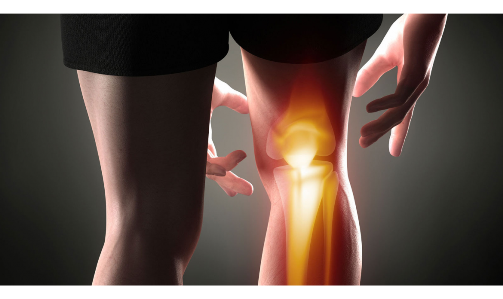Diabetes Mellitus should be treated and controlled on time, so that all the other vital organs of our body remain well protected. There is a very strong relationship between diabetes and our vascular system. Diabetes can cause harm to our macro vascular system as well as our micro vascular system. Macro vascular complications include diseases like coronary artery disease, strokes and peripheral arterial disease, while micro vascular complications include diseases like diabetic retinopathy, diabetic nephropathy and diabetic neuropathy. This article will focus on micro vascular complications.
- Diabetic Retinopathy
Diabetic retinopathy is an eye disease. Diabetes damages the small blood vessels supplying blood to the eyes and causes vision loss. More is the duration and severity of diabetes; more is the risk of developing diabetic retinopathy. The two stages of diabetic retinopathy are non-proliferative diabetic retinopathy (NPDR) and proliferative diabetic retinopathy (PDR).
During NPDR, the macula (responsible for clear front vision) present in the center of retina, swells. It is known as macular edema. In some cases, macular ischemia occurs. In this disease, the blood vessels supplying blood to retina get blocked, and tiny particles called exudates are formed. These exudates cause loss of vision.
During PDR, which is the more advance stage of diabetic retinopathy, neovascularization takes place. It is a condition in which new and fragile blood vessels start to form in the retina. When these blood vessels bleed, they form few dark floaters. Excessive bleeding can lead to complete vision loss. PDR can cause loss to both peripheral (side) and central vision.
Symptoms
Symptoms include blurred and fluctuating vision, increasing floaters in the vision, dark areas appearing in the field of vision, faded colored vision and poor night vision. These symptoms usually affect both the eyes.
Diagnosis
Eye examination is done to find out any changes in the blood vessels. Eye drops are put to dilate the pupil. This allows the ophthalmologist to look into your eyes with a special lens. Then doctor may perform fluorescein angiography to examine the changes in the retina. Fluorescein is a yellow dye, which is injected into an arm vein. As this dye travels through the blood vessels present in the retina, a special camera is used to take photographs of the retina. This helps the doctor to find out blocked or leaking vessels. It also helps to locate the growth of abnormal blood vessels.
Another method to measure swelling in macula is to perform Optical Coherence Tomography (OCT). In this method a machine is used to scan the retina. This machine gives detailed images of the swelling in retina.
Treatment and Prevention
Medicines are given to control blood sugar and blood pressure. Proper control of these two, can restore some of the lost vision. A few drugs are given through injection to reduce the swelling in the macula. One must follow the diet recommend by your doctor. In case of leaking blood vessels, laser surgery may be performed. It helps to shrink the blood vessels and reduce the swelling in the retina. It also prevents them from growing back again.
In case of PDR, the Ophthalmologist may recommend Vitrectomy. This is a surgery during which blood from leaking vessels is cleaned. This surgery allows the light rays to focus correctly on the retina.
There are certain preventive methods, which if followed properly can control the development of diabetic retinopathy. People with diabetes should strictly follow their diet and medicines as suggested by the treating clinician. One should also take care of their blood pressure and get it monitored on a regular basis. Visit your ophthalmologist regularly, so that diabetic retinopathy is diagnosed in its very early stages. Early treatment may prevent it from further development.
- Diabetic Nephropathy
It is a kidney disease caused due to prolonged, poorly controlled diabetes. The small blood vessels of the kidney get damaged, and their ability to filter waste products is lost. The high level of blood glucose during diabetes makes them filter too much blood. This extra work, over the years, damages the filters and they start to leak. Due to such leakage, useful proteins (albumin) also get lost in the urine. A small amount of protein loss is called micro albuminuria. But when this loss increases, the condition is called macro albuminuria.
because the kidney loses its ability to filter waste products, waste accumulates in the blood. This causes end-stage renal disease (ESRD). It can lead to kidney failure and death.
Symptoms
There are no early symptoms of this disease. As it progresses, one may become anemic and feel tired, may experience headaches and experience difficulty in concentrating, nausea, vomiting and poor appetite. The legs may swell with fluid accumulation and the frequency of urination increases.
Diagnosis
Urine test is done to find out the amount of protein in urine. If it is more than the normal amount, the condition is known as proteinuria. Blood test is done to find out the amount of waste products and serum creatinine. Their amount determines the degree of damage caused to the kidney.
Treatment
If diagnosed at a primary stage, several preventive measures can be taken to combat the progression of this disease. Medication and lifestyle changes are required to control high blood glucose levels and high blood pressure. One should take less salt, low-protein diet, avoid alcohol and tobacco and do regular exercise. In case of ESRD, doctor may suggest kidney transplant or dialysis. Dialysis helps to filter the blood.
- Diabetic Neuropathy
It is a disease of the nerves caused by chronic, poorly controlled Diabetes Mellitus. Diabetes not only causes direct damage to the nerves, but it also decreases the flow of adequate blood to the nerves. This damages the small blood vessels supplying nutrition to the nerves and leads to many problems of the following types :-
Peripheral Neuropathy
It is the most common type, which affects the nerves in the hands, arms, legs, and feet. It usually starts in the feet.
Symptoms
Symptoms include numbness and tingling sensation in the feet. The feet muscles become weak, and one is unable to feel the feet while walking. Even the pain caused by blisters and injuries in the feet can not be felt. And the healing of such wounds is also very difficult and slow.
Diagnosis
Doctor checks for numbness, blisters, injuries and other problems in the feet. Complete examination of feet problems, right from skin, muscles, bones and blood flow, is done. Nerve conduction is studied to check its efficiency, while electromyography (EMG) is undertaken to check the working of nerves and muscles together.
Treatment
There is no treatment that can fully cure peripheral diabetic neuropathy. It can not be reversed. But tight control of blood glucose levels can partially arrest the progress of the existing peripheral neuropathy and prevent it from getting worse. Once detected, proper care of legs and feet should be taken. Doctor may prescribe medicines to provide relief from numbness, burning and tingling sensation.
Apart from medications, physical therapies also play a vital role in managing this disease. Physical activities like stretching exercises, muscle strengthening exercises and aerobic exercises are advised for managing this condition.
Autonomic Neuropathy
It affects the autonomic nerves. These nerves control intestinal tract, urinary tract, genitals, eyes, heart and other vital organs of our body.
Symptoms
Symptoms affecting digestive system include heartburn, diarrhea, constipation, vomiting, bloating and gastro paresis (ability to move food through stomach is lost).
Symptoms affecting urinary tract include bladder control problems, leaking urine, and frequent bladder infections.
Symptoms affecting heart include fast heartbeat, dizziness, and heart attack.
The genitals also get affected. Men experience erectile dysfunction, while women have problems like vaginal dryness, and problems of feeling aroused and attaining orgasm.
Diagnosis
Stomach problems can be diagnosed using x-rays, while ultrasound is used to diagnose bladder related issues. Therefore, the diagnosis includes both physical and specific investigations.
Treatment
Though this disease is irreversible, yet several treatments are available to control the damaging effects caused by it. Proper medications can reduce diarrhea, improve digestion and cure problems related to erectile dysfunction.
Additional types of Neuropathy
Charcot’s Joint mostly affects foot. The sensation in the foot is lost and even muscles are unable to support the joints. This leads to difficulty in walking, ultimately leading to joint breaks.
Cranial neuropathy affects the nerves connected with brain. These are 12 pairs of nerve, which control sight, hearing, eye movement and taste.
When a single nerve gets damaged, the condition is known as compression mono neuropathy. Nerves of patients with diabetes are more susceptible to compression injury. Among many, carpal tunnel syndrome is the most common form of compression neuropathy. In this disease, the median nerve of the forearm gets compressed at the wrist. This causes swelling and numbness in the fingers. In severe cases, it may require a surgery.
People with type 2 diabetes often develop femoral neuropathy. Pain develops in the front part of the thigh, followed by muscle weakness and muscle wasting. Just like femoral neuropathy, there is another mono neuropathy called Thoracic or Lumbar neuropathy. It affects the torso.
Another neuropathy, called focal neuropathy causes double vision and Bell’s Palsy. During Bell’s Palsy, paralysis occurs on one side of the face.
Steps to prevent or delay nerve damage
One should take proper care to keep their blood glucose level under control. Once detected, start the treatment as soon as possible. Regular exercises should be done. In case of neuropathy, it should only be done under proper supervision of the doctor. Stress signals given by the body, should not be ignored. If one feels any problem, then the treatment should start right away. Early treatment prevents and limits further damage.






























